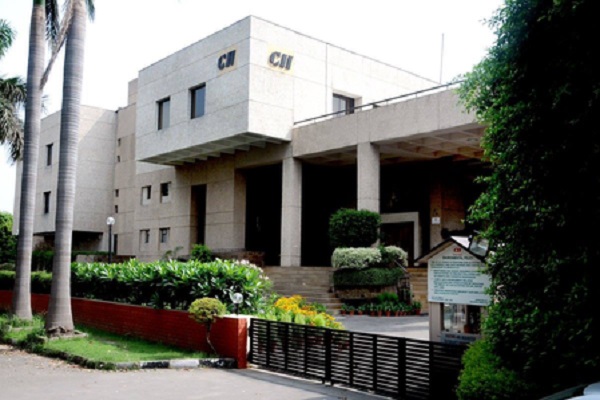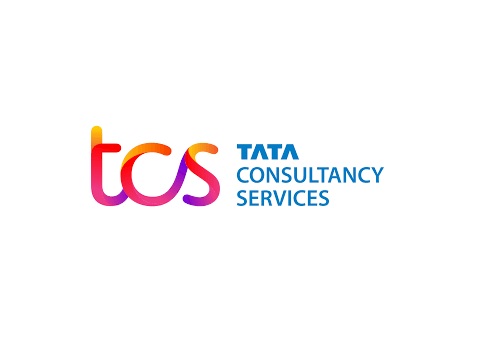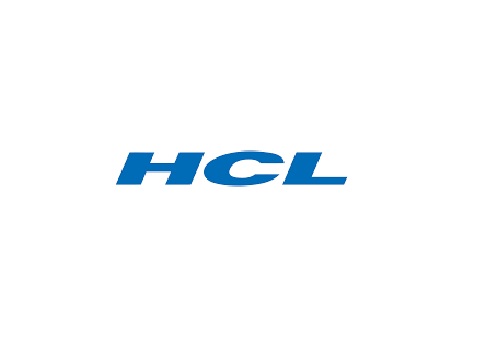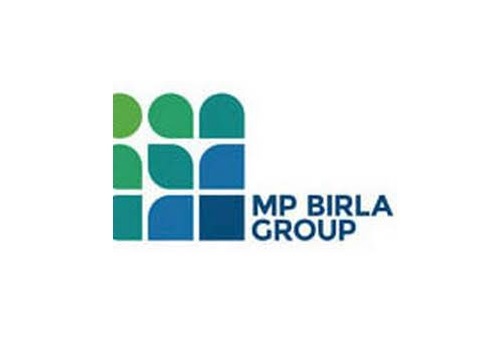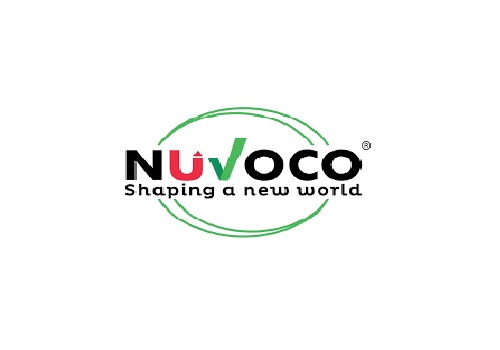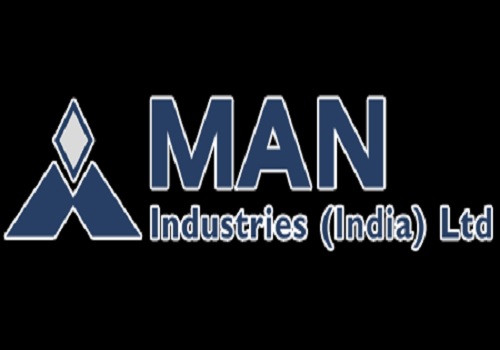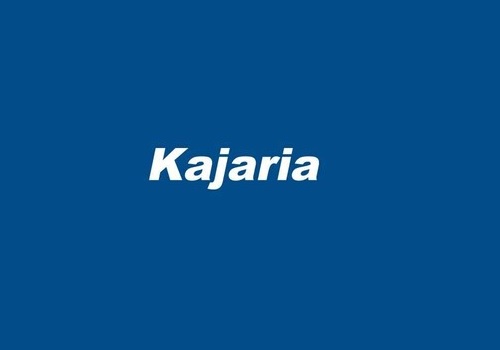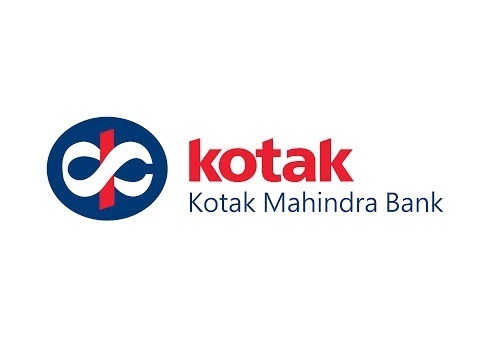Reduce Navin Fluorine Ltd For Target Rs. 5,000 By Emkay Global Financial Services Ltd
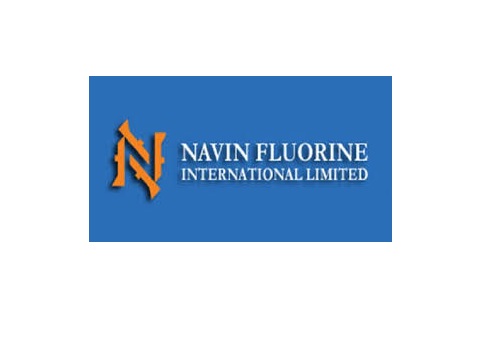
Navin’s FY25 annual report focuses on its 3P business model—viz product, platform, partnership—as it scale up business operations led by alreadycommissioned assets (R32; fluorospecialty capex) in FY25 and projects (AHF; cGMP-4; immersion cooling fluid project) set to commission in FY26/27. KTAs: 1) Revenue growth led by domestic sales (flat exports). 2) Strong balance sheet with ~Rs4.7bn worth liquid investments and the recent QIP to keep debt at comfortable levels and fund the FY26 capex. 3) Cash generated was precisely enough to fund capex in FY25. 4) No change in absolute working capital (WC) requirement, despite 14% revenue growth YoY, while the WC cycle eased to 90 days from 103 in FY24. 5) R&D spends spread evenly across verticals (primarily CDMO), with focus on maturing from the early stage into commercial stage. We retain REDUCE and remain cautious of the evolving ref gas pricing environment.
Consistent growth in topline; profitability to follow
Navin’s revenue/EBITDA/PAT CAGR stood at ~19%/15%/4% over FY21-25. PAT remained depressed due to higher leverage from FY23 onward and increase in depreciation. In FY25, NFIL commissioned its fluorospecialty capex of Rs5.4bn and R32 capex at Surat. The management expects both the projects to ramp-up in FY26, with strong traction from the export markets. cGMP-4 capex of Rs1.6bn (Phase-1) is expected to commission in early-CY27. AHF capex of Rs4.5bn is scheduled for commissioning by Q2FY26. The company has forayed into the advanced materials space with tie-ups with Chemours for immersion cooling fluids and investment in electronic/solar grade AHF.
Cash generation cycle has begun
FY22-23 saw limited cash generation due to significant infusion in working capital, led by the rising refrigerant gas/raw material pricing environment. Over FY21-25, the company invested Rs26bn toward capex which led to negative FCF of ~Rs10bn over the same period. Thus, capex during that period was funded through external borrowings. Navin generated OCF of Rs5.7bn in FY25 (vs 5Y cumulative OCF of Rs15.7bn) which augers well for future operating performance and provides comfort on funding future capex (recent QIP to reduce debt). OCF-to-EBITDA has remained volatile over the last 5years owing to an irregular working capital cycle; we expect the ratio to fall back in the 0.7-0.8x range.
Consistent spending on R&D; ESG remains at the forefront of operations
NFIL’s R&D expenditure saw a spike in FY24 and reached ~6% of revenue, led by capex at its Dewas R&D facility. FY25 R&D expenditure stood at Rs547mn (2.3% of revenue). Revenue expenditure toward R&D has seen ~25% CAGR over FY21-25. Focus remains on maturing of early-stage innovations into commercial scale operations. Navin has undertaken several initiatives on the ESG front: 1) implementing energy efficiency (251,209 KwH), 2) reducing water consumption and wastewater management (0.8mn Kl), and 3) 81% of the waste is being recycled. Director remuneration at ~5.1% of PBT.
The cash generation cycle has begun…
FY22 and FY23 saw higher requirement of cash toward working capital, with the cash profit after tax also seeing a jump. FY23 benefitted from strong ref gas pricing which led to the company logging its highest-ever PBT, of, Rs5bn which in turn led to expansion of the balance sheet due to increase in overall working capital (Rs5.3bn). Thus, FY23 saw negative OCF of Rs0.6bn. OCF soared in FY24 to Rs7.5bn due to easing of working capital (Rs3.6bn). OCF in FY25 was higher than average, at Rs5.7bn on account of increasing non-cash adjustment (primarily led by higher depreciation) and cash released from working capital. As operations continue to grow and the company starts to realize the benefit from capex incurred over FY22-25, the OCF-to-EBITDA conversion, which has been volatile, shall moderate to 0.7-0.8x (contingent on the nature of contracts). Over FY21-25, NFIL invested Rs26bn in capex/acquisitions and will incur further capex in FY26 for its AHF plant and cGMP-4. Cumulative cash flow from operations over the same period stood at Rs15.7bn which led to negative free cash flow generation. Cash requirement for the capex was met through external borrowings in FY23/24 (net debt-to-EBITDA jumped from -2x in FY21 to +2x in FY24, and moderated to 1.75x in FY25). The recent QIP in Jul-25 shall lead to partial repayment of those borrowings in FY26, thus lowering leverage ratios.
Performance of subsidiaries
The company has one material wholly-owned subsidiary—Navin Fluorine Advanced Sciences Limited (NFASL), incorporated in Feb-20. Navin’s Dahej plant falls under NFASL. A large part of the capex (excluding CDMO) is being undertaken within this entity. Navin’s other subsidiary in UK is primarily a joint-investment entity holding 49% of Manchester Organics along with the standalone entity. Navin’s US entity focuses on increasing the market penetration of the CDMO business in the US and attracting appropriate talent as and when the business needs expansion. The company’s Shanghai-based subsidiary caters to local sourcing in China.
Navin has been investing in capex at its Dahej site. FY25 saw FCF generation of Rs786mn at the standalone level, while the subsidiaries saw negative FCF of Rs1.5bn. NFASL capitalised ~Rs8bn of assets, including the recently commissioned fluoro plant as well as assets supporting efficiency improvements. NFASL is incurring capex on the AHF plant (40ktpa capacity), which is expected to commission in Q2/Q3 FY26 and lead to depressed FCF in FY26.
Related-party transactions
- Navin is engaged in related-party transactions with subsidiary NFASL, for the sale/purchase of goods. It has invested in preference share of the same entity and received repayment of inter-corporate deposits. Navin continues to provide material corporate guarantees of ~Rs17bn, as of Mar-25.
- Navin’s related-party transactions (RPTs) on the consolidated front have been limited to 1) sale of goods to enterprises over which the KMP has significant influence (Rs23mn), and 2) donations (Rs20mn). We do not see any material transactions over FY24-25.
- Director remuneration for FY25 stood at Rs194mn (5.1% of PBT). The compensation has increased 18% YoY. These payments are largely shared between the Chairman and the professional MD.
Contingent liabilities and capital commitments
Navin’s contingent liabilities marginally increased to ~Rs124mn in FY25 from ~Rs116bn in FY24, primarily due to income tax-related matters. There have been no reductions in other contingent matters over the last year. The company has not disclosed the case matters pertaining to income tax. The group had capital and other commitments of Rs2.4bn outstanding as of Mar-25 (~90% of its net worth), up 17% YoY. These are largely further to contracts to be executed on capital account which are not provided for as on the balance sheet date.
Consistent R&D toward developing its CDMO vertical
Navin had incurred significant capital expenditure, of Rs800mn in FY24, toward commissioning of the 1,400sqft modern R&D store at Dewas R&D for ensuring safe handling and storage of chemicals based on their compatibility and expanding the kilo lab & pilot plant and new instruments. Total spends toward R&D were as high as ~6% of revenue in FY24. Navin Fluorine operates three R&D centers (Surat, Dewas, and Manchester Organics), each designed with a unique business model for managing distinct and diversified portfolios – from ideation to commercialization of molecules. Navin halved its R&D spend to ~Rs547mn in FY25.
ESG remains at the forefront of operations
Navin has taken several initiatives on the ESG front as part of its efforts to build an organization focused on accountability, transparency, and sustainable value creation.
- The Dewas (CDMO) site was awarded the Gold Medal in the EcoVadis Business Sustainability Rating in CY24. The EcoVadis assessment evaluates 21 sustainability criteria across environment, labour and human rights, ethics, and sustainable procurement.
- On the environment front, the company remains committed to driving energy efficiency, renewable energy, value to waste, recycled materials, waste management, etc.
- The company completed 32 customer audits with major pharma innovators across the EU and US in FY25.
- Navin consumed 15.8mn kWh units of electricity in FY25, and could reduce 0.3mn kWh units of electricity on chiller compressor and optimized steam usage in the BF3 plant. 20% of the electricity consumed is from a renewable source.
- 60% of the total water demand is filled from recycled water. 81% of the total waste generated is recycled. The company could conserve 15,539GJ of energy.
- On the social front, the company is nurturing a culture of continuous growth and collaboration by way of various engagement programs and training. In Q4FY25, the company has been able to improve its weekly learning hours trend, from ~100 to ~1,100.
- The company has a total of ~1,500 full-time employees. The female workforce count across the organization stands at 50.
- Navin has various initiatives catering to engagement, viz the Emerging Leaders Programme (ELP), Navin-Udemy Learning Universe, Voice of People (VOP) survey.
- During the year, the company rolled out the integrated HRMS platform that focuses on various core modules pertaining to people management.
- During the year, Navin allocated Rs69mn toward CSR as against budget of Rs66mn.
- On the governance front, 4 of the 7 committees are chaired by independent directors. The median age of the directors as of Mar-25 is 58, thus highlighting their rich experience. The company has 2 executive directors and 7 non-executive directors.
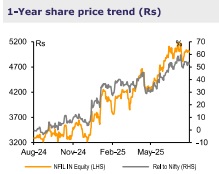
For More Emkay Global Financial Services Ltd Disclaimer http://www.emkayglobal.com/Uploads/disclaimer.pdf & SEBI Registration number is INH000000354















